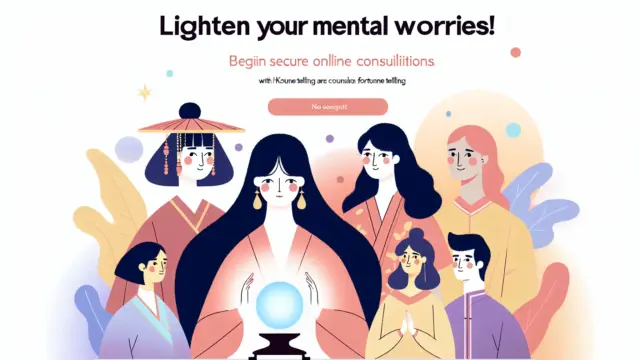Understanding a man’s bad mood can be a key to strengthening your relationship. When he seems distant or irritable, it might not always be about you. Often, his attitude reflects deeper feelings or stressors that he may not be ready to share. By tapping into his emotional world, you can foster better communication and understanding.
Navigating these moments can be challenging, but recognizing the signs and responding positively can create a safe space for him to open up. Learning how to interpret his mood can help you both reconnect and deepen your bond, transforming a tough situation into an opportunity for growth together.
- Explore the characteristics of male emotional expression and how they impact relationships.
- Discover effective communication techniques to help navigate bad moods.
- Learn the importance of positive responses to foster a healthier emotional connection.
Understanding Men’s Psychology When in a Bad Mood
Characteristics of Male Emotional Expression
Understanding how men express their emotions can provide valuable insights into their behavior. Unlike women, who may openly communicate their feelings, men often tend to keep their emotions bottled up. This can lead to misunderstandings, especially when they are feeling down or irritable. Recognizing that silence or withdrawal isn’t necessarily a rejection can help you approach the situation with empathy.
In many cases, men may express their bad moods through subtle cues rather than direct communication. This includes changes in body language, tone of voice, or even a lack of enthusiasm in conversations. By paying attention to these characteristics, you can better understand what he might be feeling and respond appropriately.
- Men’s emotional expressions can be less overt than women’s.
- Subtle cues like body language and tone are key indicators.
- Empathy can help bridge the communication gap.
Causes of Bad Moods
There are various reasons why a man might find himself in a bad mood. Stress from work, personal issues, or even just feeling overwhelmed by daily life can all contribute to his emotional state. Often, these triggers have little to do with you or your relationship, but can still affect how he interacts with you.
Another important aspect to consider is that societal norms often dictate how men should handle their feelings. Many feel pressured to appear strong and composed, which can lead to frustration when they are struggling internally. This internal conflict can manifest as irritability or withdrawal, making it crucial for you to recognize the signs and not take his mood personally.
Additionally, hormonal fluctuations can also play a role in a man’s emotional state. Just like women, men experience changes in hormone levels that can impact their mood and behavior. Being aware of these biological factors can help you understand the ebb and flow of his emotional landscape.
Finally, it’s essential to remember that everyone has off days. Sometimes, a bad mood is just that—a momentary dip in mood that will pass with time. By maintaining patience and offering support, you can help him navigate through these tough moments without feeling the need to fix everything immediately.

If you’re intrigued by the dynamics of men’s emotions and how they affect relationships, you might find it beneficial to explore the insights shared in the article What Makes Men Adjust Their Return Time? Tips to Deepen Your Relationship. This piece delves into the underlying reasons behind men’s behavior, offering practical tips on how to enhance your relationship through better understanding of their psychological cues.
- Stress and personal issues are common triggers for bad moods.
- Societal expectations can complicate emotional expression for men.
- Hormonal fluctuations may influence mood changes.
- Patience and support can foster a positive emotional environment.
The Impact of Bad Moods on Relationships
Barriers to Communication
Bad moods can create invisible barriers in relationships, making it hard for partners to connect. When a man is feeling low, he may retreat into silence, leaving his partner feeling frustrated and confused. This withdrawal can lead to a breakdown in communication, where both individuals might feel misunderstood. Understanding that this behavior often stems from deeper emotions can help you approach the situation with more compassion and patience.
It’s important to recognize that during these times, men might not want to talk about their feelings even though they need support. The tendency to bottle things up can lead to assumptions and misinterpretations. You might feel the urge to push him to open up, but this can often backfire. Instead, creating a non-judgmental space where he feels safe can encourage him to share his thoughts when he’s ready.
Active listening plays a crucial role in breaking down these barriers. It’s not just about hearing his words, but really trying to understand what he’s going through. By validating his feelings and showing that you care, you can foster a connection that helps him feel less isolated during tough times.
- Bad moods can lead to withdrawal and silence.
- Misunderstandings often arise from this lack of communication.
- Creating a safe space encourages openness and honesty.
Changes in Relationships and How to Cope
When a man is in a bad mood, it can lead to noticeable changes in the dynamics of your relationship. You might find him less engaged or more irritable, which can be disheartening. Recognizing these shifts is vital, as they often reflect his internal struggles rather than issues within the relationship itself.
To cope with these changes, it’s essential to maintain open lines of communication. Let him know that you’re there for him, even if he doesn’t feel like talking right away. A simple gesture like a reassuring touch or a gentle smile can go a long way in expressing your support.
Additionally, focusing on self-care for both partners is important during these challenging times. Encourage activities that can help alleviate stress for both of you, whether it’s going for a walk, watching a movie together, or simply enjoying some quiet time. This can help you both manage the emotional ups and downs more effectively, keeping your bond strong even when challenges arise.
- Relationship dynamics can shift during a partner’s bad mood.
- Open communication is key to maintaining connection.
- Engage in self-care activities together to strengthen your bond.
Reading Psychological Signs from Men’s Attitudes
Noticing Changes in Attitude
When a man is in a bad mood, his attitude can change in various ways that are important to recognize. You might notice that he becomes more withdrawn or less communicative than usual. These shifts can often be subtle, like a lack of enthusiasm in his voice or a distracted look in his eyes. Observing these changes can give you insights into what he might be feeling, even if he hasn’t directly expressed it.
Being aware of these attitude changes allows you to approach him with more sensitivity. For example, if he seems unusually quiet, instead of taking it personally, consider that he might just be dealing with something on his mind. Acknowledging these signs can help you create an environment where he feels comfortable sharing when he’s ready. This proactive approach can strengthen your bond and improve the dynamics of your relationship.
Additionally, recognizing these patterns can help you avoid misunderstandings. Sometimes, we might jump to conclusions about why he’s acting a certain way, but often, it has nothing to do with us. By focusing on what he might be experiencing internally, you can respond with compassion rather than frustration. This understanding is key in navigating the complexities of male psychology when in a bad mood.
- Changes in attitude can be subtle but significant.
- Recognizing shifts allows for a more sensitive approach.
- Avoid misunderstandings by focusing on his internal experience.
The Importance of Positive Responses
Responding positively to a man’s bad mood can greatly affect how he processes his feelings. Instead of pushing him to talk about what’s bothering him, offering a supportive presence can make a world of difference. Simple gestures, like sitting quietly with him or engaging in a favorite activity, can help him feel less isolated. These positive responses signal that you care and are there for him without pressure.
Moreover, your reactions can influence how he perceives his mood. If you remain calm and understanding, it can help create a safe space where he feels more at ease. This supportive environment may encourage him to eventually open up about what’s on his mind. Remember, it’s not about fixing the situation immediately but rather about being present and showing empathy.
Ultimately, how you respond during these challenging moments can either strengthen or weaken your relationship. By focusing on positive interactions, you foster a deeper emotional connection. This approach not only benefits him but also enhances your relationship as a whole, transforming difficult moments into opportunities for growth and understanding.
- Positive responses create a supportive atmosphere.
- Your calmness can encourage him to open up.
- Strengthening your bond through empathy enhances the relationship.
Approaches to Improve Mood
Effective Communication Techniques
When a man is in a bad mood, effective communication can be a game changer. It’s not just about talking; it’s about understanding how to create a dialogue that encourages openness. Begin by choosing the right time and place to engage him. A calm environment, free from distractions, can set the stage for a meaningful conversation.
Asking open-ended questions can help him express his feelings without feeling pressured. Instead of “What’s wrong?” try something like “How has your day been?” This approach gently invites him to share what’s on his mind. Remember, the goal is to listen actively. Show that you’re genuinely interested in what he has to say, which can help him feel valued and understood.
Additionally, validating his feelings is crucial. If he shares that he’s feeling overwhelmed, acknowledge that it’s okay to feel that way. This support can create a safe space for him to express himself more freely, fostering a deeper emotional connection between you both.
- Choose a calm environment for conversations.
- Use open-ended questions to encourage sharing.
- Validate his feelings to show support.
Tips for Sharing Emotions
Sharing emotions can be a daunting task, especially when one partner is in a bad mood. However, it’s vital for fostering intimacy and understanding in your relationship. Start by leading by example. When you share your own feelings, it can motivate him to open up as well. For instance, if you’re feeling a bit down, express that in a way that invites him to share his feelings too.
Timing is also essential. Choose moments when he seems more relaxed or receptive to talk about emotions. It’s often easier to share when you’re engaged in a casual activity together, like cooking or taking a walk. This way, the pressure is off, and it feels more natural to discuss feelings.
Another key aspect is to be mindful of your tone and body language. A gentle approach can make a significant difference. If you approach him with warmth and patience, it encourages him to reciprocate. Let him know that it’s okay to be vulnerable and that you’re there to support him, no matter what.
Lastly, be prepared for any reaction. Sometimes, he may not be ready to talk, and that’s okay. Respecting his space while gently reminding him that you’re there can keep the lines of communication open for the future. This balance of openness and patience is essential in nurturing a healthy emotional connection.

If you found the insights in this article helpful, you might also appreciate our piece on understanding the psychology of guys who invite you out for fun. In the article, Understanding the Psychology of Guys Who Invite You Out for Fun: How to Enjoy Your Love Life, we delve into their motivations and how this knowledge can enhance your love life.
- Lead by example when sharing your own feelings.
- Choose relaxed moments for emotional conversations.
- Use a gentle tone and supportive body language.
- Respect his space while remaining available to talk.
Summary of Key Insights on Male Psychology When in a Bad Mood
Understanding male psychology when a man is in a bad mood is essential for nurturing a healthy relationship. Recognizing how men express their emotions, often in subtle ways, helps partners respond with empathy and support. By being aware of the reasons behind their moods—like stress, societal expectations, and hormonal changes—partners can create a safe space that encourages open communication. Furthermore, positive responses and effective communication techniques can transform challenging moments into opportunities for connection and growth.
It’s important to remember that a bad mood doesn’t always reflect the state of the relationship. Often, external factors contribute to these feelings, and maintaining patience can be beneficial. Engaging in shared activities and validating feelings can further strengthen the bond between partners. By focusing on understanding and empathy, couples can navigate these emotional complexities together.
In summary, fostering an environment of open dialogue and emotional support is key. This approach not only helps in managing bad moods but also enhances the overall relationship dynamics. By applying these insights, couples can build a stronger emotional connection that thrives even during tough times.
- Men often express emotions through subtle cues rather than direct communication.
- External stressors and societal expectations can impact a man’s mood.
- Positive responses and effective communication techniques foster a deeper emotional connection.
We’d love to hear your thoughts! How do you approach your partner’s bad moods, and what techniques have worked for you? Share your experiences in the comments below!







Comment